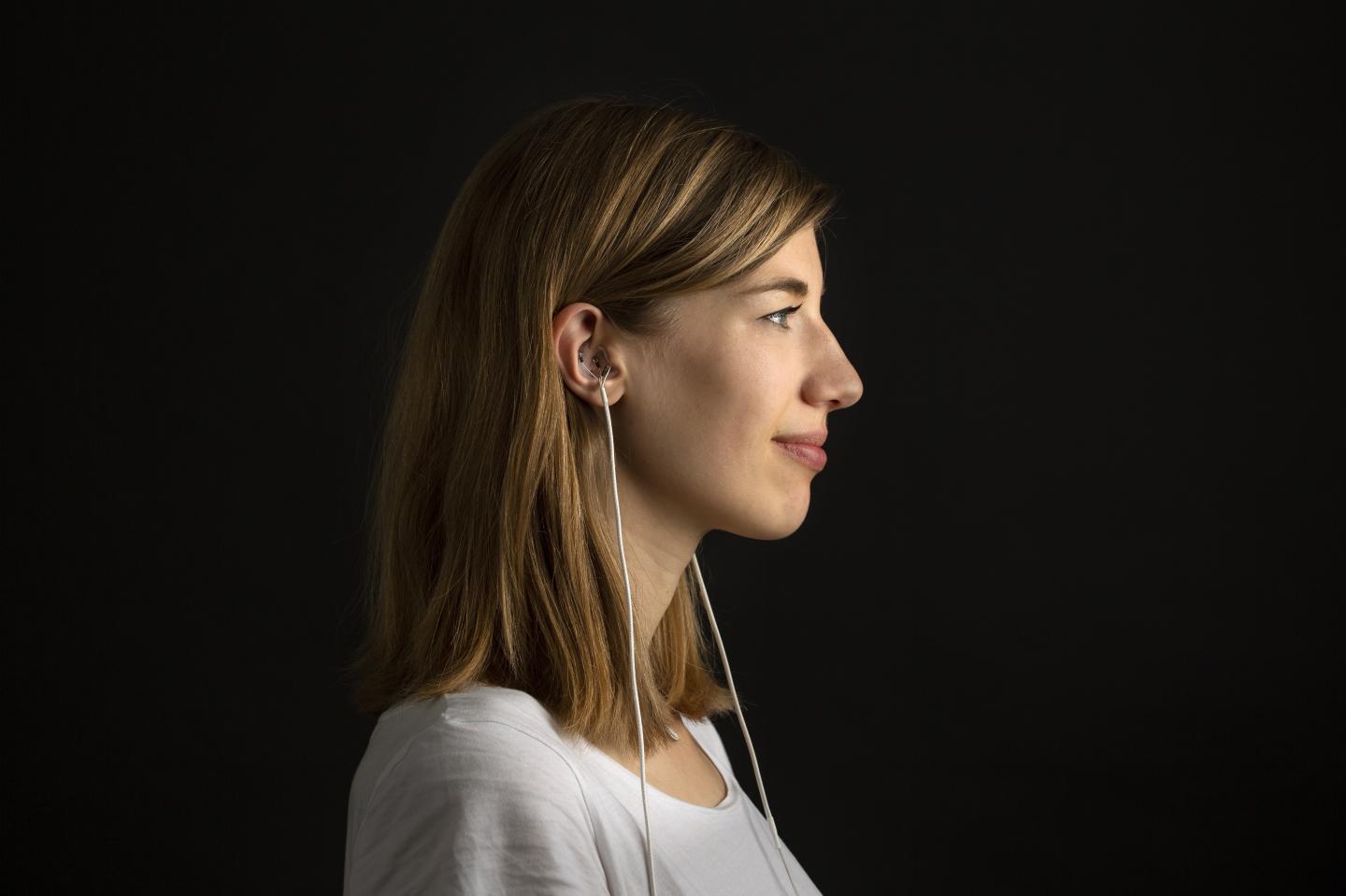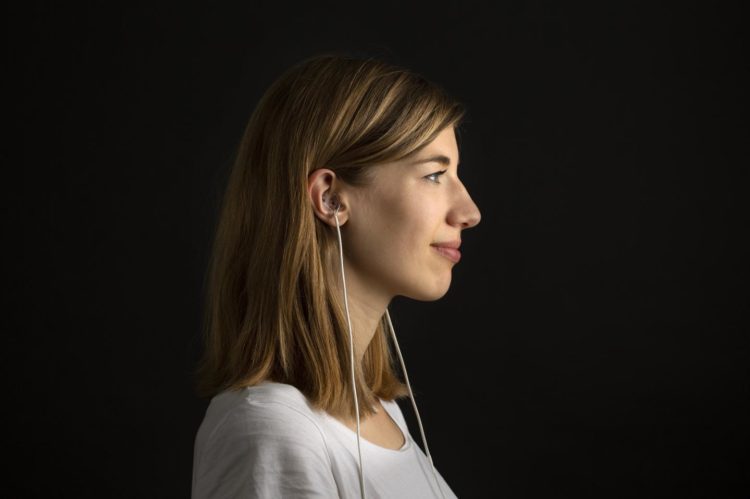Danish researchers are world leaders in brain measurement via a special device fitted in the ear like a hearing aid. The technology is called ear-EEG, and now Aarhus University has received a grant to ensure further development of the method

Credit: AU Foto
Researchers at the Department of Engineering are world leaders in brain measurement via a special device fitted in the ear like a hearing aid. The technology is called ear-EEG, and now the university has received a new grant to ensure further development of this Danish-designed method.
Aarhus University (AU) has just received DKK 20 million (EUR 2.7 million) for a new research centre focusing on a unique method of measuring electrical activity in the brain.
The method is known as ear-EEG (ear-ElectroEncephaloGraphy) and it measures extremely small voltage changes on the surface of the skin inside the ear caused by electrical activity in the brain’s neurons. The protected, more discrete placement makes the method more attractive than traditional EEG measurements, which use electrodes placed on top of the head.
The generous grant was donated by the families behind WS Audiology and UNEEG Medical and the William Demant Foundation, including Oticon.
The research group Bioelectrical Instrumentation and Signal Processing, headed by Professor Preben Kidmose from the Department of Engineering at AU, has pioneered the area for many years and is currently the world leader.
“We’ve been working on this methodology for the past ten years, and the new centre will ensure a significant expansion of our research activities within ear-EEG. Our research develops the measuring technology itself and explores what is possible to actually measure. We see a huge potential in ear-EEG, both in terms of research and applications. For example, you can use ear-EEG to characterise hearing loss much more precisely than what is practicable today. Ear-EEG can also be used for other things, for example to explore human sleep patterns and help provide a better understanding of various brain diseases,” he says.
24/7 brain measurement opens new doors
One of the great advantages of ear-EEG is that the method enables measurement of brain activity outside the laboratory in a discreet and minimally intrusive manner, over a long period of time (potentially 24/7), and on large cohorts of people.
The method enables us to construct devices to measure brain activity and adapt it to the user in a radically different way than today. Among other things, Professor Kidmose hopes it will take us a step further towards understanding the human brain.
“Ear-EEG provides a unique opportunity to measure brain in our natural environment. And that’s why we can begin to delve into things that we otherwise wouldn’t be able to measure. For example, we don’t really know much about how our sleep varies over time, and how it’s affected by our surroundings. And because we can measure sleep and patterns in the EEG that correlate with cognitive ability, we hope to get a better understanding of the correlation between sleep and cognitive ability. These are just some of the things I hope the technology will help us with,” he says.
Health-promoting research
The opening of the centre is very important for both the William Demant Foundation, UNEEG medical and WS Audiology, who consider their massive investment in development of this Danish technology as a matter of course.
“We’re proud to support this world-leading centre that can bring forward new knowledge about how we can record impulses in the ears, and how we can use this knowledge to benefit general health. At the William Demant Foundation, one of our main tasks is to support research and innovation that can help alleviate hearing health,” says Lars Nørby Johansen, chair of the William Demant Foundation, and the families behind WS Audiology agree:
“We’ve been working with Professor Preben Kidmose at AU for many years, and we’ve seen many exciting results. That’s why I’m very pleased that we’ve been able to help establish a more permanent framework for his research. Ear-EEG has the potential to help people in surprisingly many areas, and I’m sure that this centre will speed up the realisation of these opportunities for the benefit of everyone,” says Richard Tøpholm, CTO of UNEEG Medical, a fellow subsidiary with WS Audiology.
Underpins the university strategy
The grant is also very important for Aarhus University’s digitalisation strategy, which has focus on research into next-generation technology and methods to monitor and work with the human brain, says the head of section for Electrical and Computer Engineering at the Department of Engineering, Aarhus University, Senior Professor of Engineering Jens Kargaard Madsen:
“We’re very pleased that, with this grant, we can now open the ear-EEG centre and strengthen our position significantly with a view to continuing as the world leader in this field of research,” he says.
###
FACTS
William Demant Foundation
Since its establishment in 1957, the foundation has supported charitable projects and ensured the business activities of the Demant Group. The group is the world leader in hearing health, and includes Oticon and Interacoustics, which for several years have collaborated with both Aarhus University and Widex on research and development in hearing health.
http://www.
UNEEG medical
Founded in 2005, UNEEG medical manufactures equipment for discrete long-term monitoring of EEG. The company has just launched an implant for long-term monitoring of EEG that can help in the diagnosis or treatment of people suffering from e.g. epilepsy or sleep disorders.
http://www.
WS Audiology
The hearing aid producer was formed in 2019 through the merger of Widex and Sivantos. WS Audiology is active in over 125 markets and employs more than 10,000 people worldwide. The company has a broad portfolio of leading hearing-related products and services.
http://www.
Media Contact
Preben Kidmose
[email protected]
45-41-89-33-21





